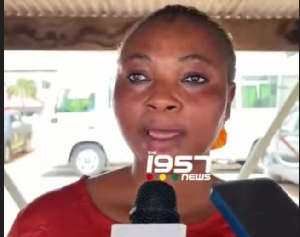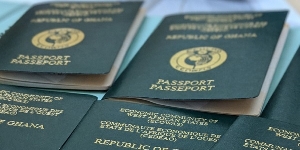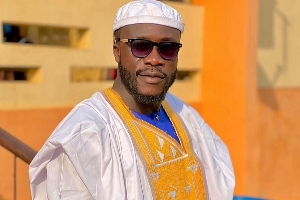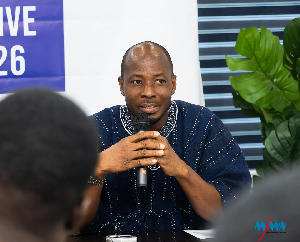One year ago, Muhammadu Buhari was sworn in as the President of Nigeria. Below is part of the full text of his speech to mark his first anniversary in office.
I am shifting allegiance to Nigeria. I truly believe that if Buhari carries on this way through his term, Ghana will be ashamed to attend Africa summits in the near future. The man is thinking.
“My compatriots, it is one year today since our administration came into office. It has been a year of triumph, consolidation, pains and achievements. By age, instinct and experience, my preference is to look forward, to prepare for the challenges that lie ahead and rededicate the administration to the task of fixing Nigeria. But I believe we can also learn from the obstacles we have overcome and the progress we have made thus far, to help strengthen the plans that we have in place to put Nigeria back on the path of progress.
We affirm our belief in democracy as the form of government that best assures the active participation and actual benefit of the people. Despite the many years of hardship and disappointment, the people of this nation have proved inherently good, industrious tolerant, patient and generous.
The past years have witnessed huge flows of oil revenues. From 2010 average oil prices were $100 per barrel. But economic and security conditions were deteriorating. We campaigned and won the election on the platform of restoring security, tackling corruption and restructuring the economy. On our arrival, the oil price had collapsed to as low as $30 per barrel and we found nothing had been kept for the rainy day. Oil prices have been declining since 2014 but due to the neglect of the past, the country was not equipped to halt the economy from declining.
The infrastructure, notably rail, power, roads were in a decrepit state. All the four refineries were in a state of disrepair, the pipelines and depots neglected.
Huge debts owed to contractors and suppliers had accumulated. Twenty-seven states could not pay salaries for months. In the north-east, Boko haram had captured 14 local governments, driven the local authorities out, and hoisted their flags. Elsewhere, insecurity was palpable; corruption and impunity were the order of the day. In short, we inherited a state near collapse.
On the economic front, all oil dependent countries, Nigeria included, have been struggling since the drop in prices. Many oil rich states have had to take tough decisions similar to what we are doing. The world, Nigeria included has been dealing with the effects of three significant and simultaneous global shocks starting in 2014: a 70% drop in oil prices.
Global growth slowdown
Normalization of monetary policy by the United States Federal Reserve
Our problems as a government are like that of a farmer who in a good season harvests ten bags of produce. The proceeds enable him to get by for rest of the year. However, this year, he could only manage 3 bags from his farm. He must now think of other ways to make ends meet.
From day one, we purposely set out to correct our condition, to change Nigeria. We reinforced and galvanized our armed forces with new leadership and resources. We marshaled our neighbors in a joint task force to tackle and defeat Boko Haram. By the end of December 2015, all but pockets and remnants had been routed by our gallant armed forces. Our immediate focus is for a gradual and safe return of internally displaced persons in safety and dignity and for the resumption of normalcy in the lives of people living in these areas.
. EFCC was given the freedom to pursue corrupt officials and the judiciary was alerted on what Nigerians expect of them in the fight against corruption. On the economy, in particular foreign exchange and fuel shortages, our plan is to save foreign exchange by fast tracking repair of the refineries and producing most of our fuel requirements at home. And by growing more food in Nigeria, mainly rice, wheat and sugar, we will save billions of dollars in foreign exchange and drastically reduce our food import bill.
We resolved to keep the naira steady, as in the past, devaluation had done dreadful harm to the Nigerian economy. Furthermore, I support the monetary authority’s decision to ensure alignment between monetary policy and fiscal policy. We shall keep a close look on how the recent measures affect the naira and the economy. But we cannot get away from the fact that a strong currency is predicated on a strong economy. And a strong economy pre-supposes an industrial productive base and a steady export market. The measures we must take, may lead to hardships. The problems Nigerians have faced over the last year have been many and varied. But the real challenge for this government has been reconstructing the spine of the Nigerian state. The last twelve months have been spent collaborating with all arms of government to revive our institutions so that they are more efficient and fit for purpose: that means a bureaucracy better able to develop and deliver policy, that means an independent judiciary, above suspicion and able to defend citizen’s rights and dispense justice equitably. That means a legislature that actually legislates effectively and above all; that means political parties and politicians committed to serving the Nigerian people rather than themselves.
These are the pillars of the state on which democracy can take root and thrive. But only if they are strong and incorruptible. Accordingly, we are working very hard to introduce some vital structural reforms in the way we conduct government business and lay a solid foundation on which we can build enduring change.
An important first step has been to get our housekeeping right. So we have reduced the extravagant spending of the past. We started boldly with the treasury single account, stopping the leakages in public expenditure.
We then identified forty-three thousand ghost workers through the integrated payroll and personal information system. That represents pay packets totaling n4.2 billion stolen every month. In addition, we will save twenty-three billion per annum from official travelling and sitting allowances alone.
Furthermore, the efficiency unit will cut costs and eliminate duplications in ministries and departments. Every little saving helps. The reduction in the number of ministries and work on restructuring and rationalization of the MDAs is well underway. When this work is complete we will have a leaner, more efficient public service that is fit for the purpose of changing Nigeria for the good and for good.
As well as making savings, we have changed the way public money is spent. In all my years as a public servant, I have never come across the practice of padding budgets. I am glad to tell you now we not only have a budget, but more importantly, we have a budget process that is more transparent, more inclusive and more closely tied to our development priorities than in the recent past. 30% of the expenditure in this budget is devoted to capital items. Furthermore, we are projecting non-oil revenues to surpass proceeds from oil. Some critics have described the budget exercise as clumsy. Perhaps, but it was an example of consensus building, which is integral to democratic government. In the end we resolved our differences.”
Our problems, their problems, you can see no difference with what he is tackling. Just more sincerity in the words and very believable.
So Auntie Charlotte “Commissioner” Osei, can you be straightforward and just redo the register so we can get some sleep and cure this growing canker? Nigeria had already cleaned theirs.
Ghana, Aha a y? din papa. Alius atrox week advenio. Another terrible week to come!
Opinions of Wednesday, 1 June 2016
Columnist: Sydney Casely-Hayford














